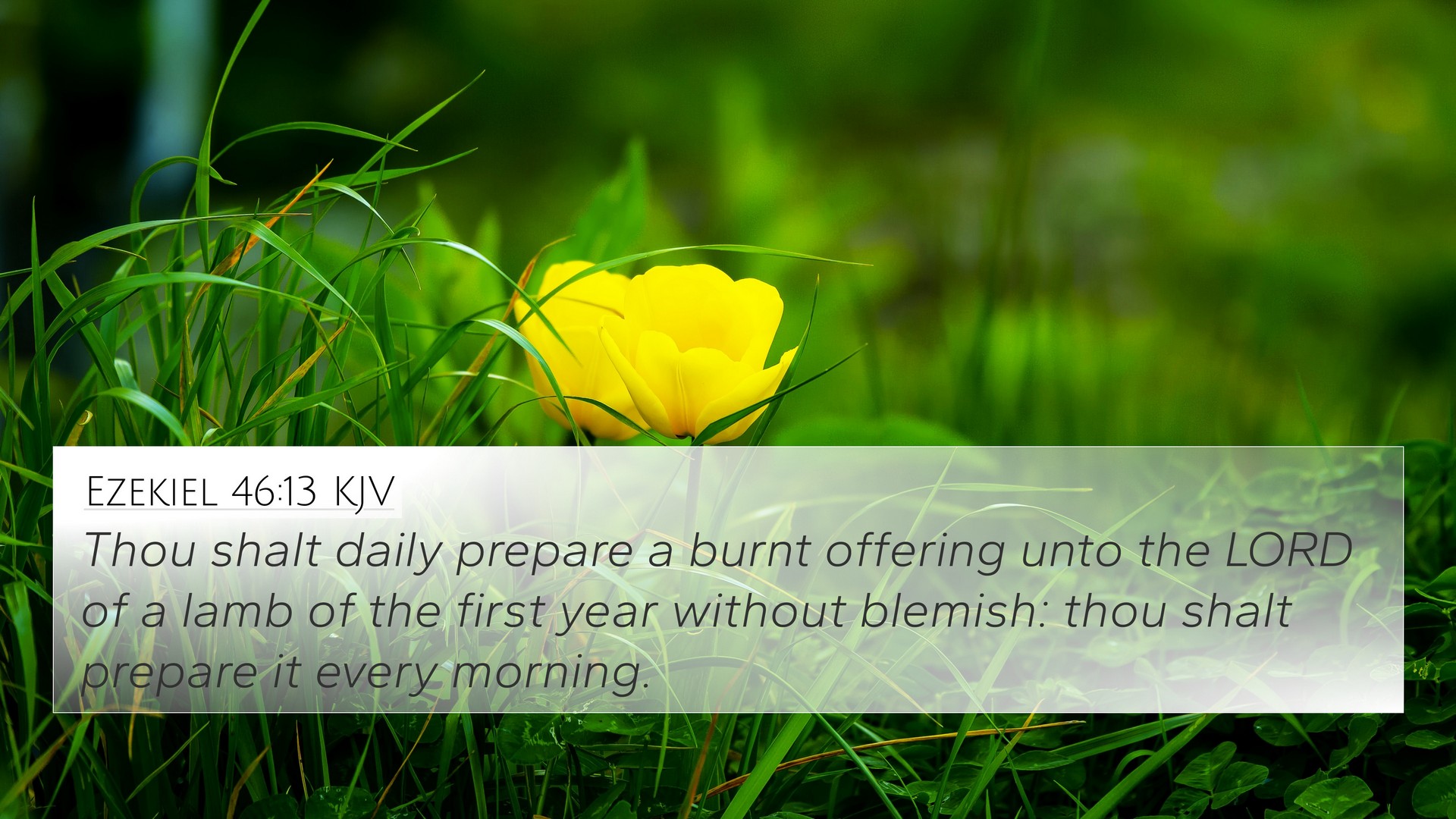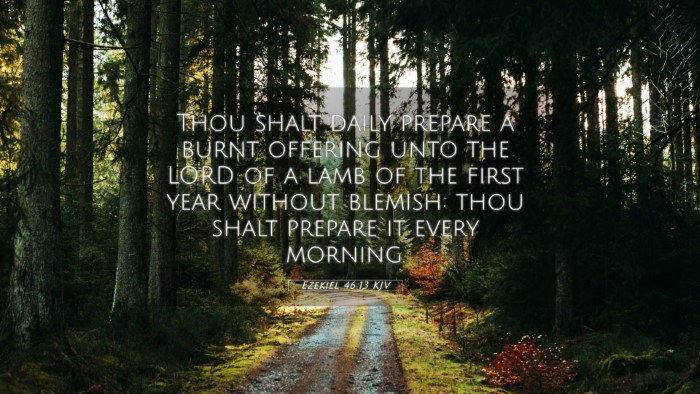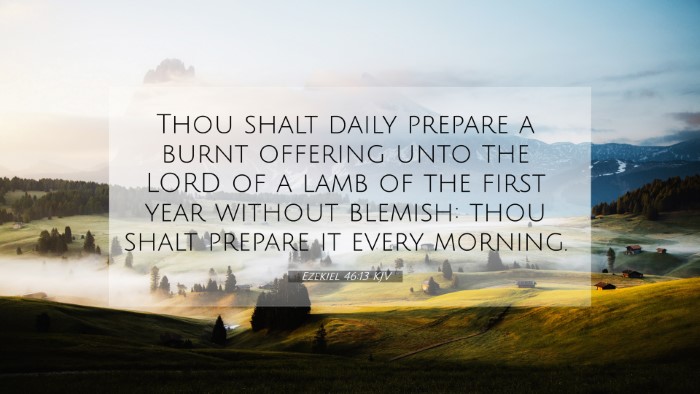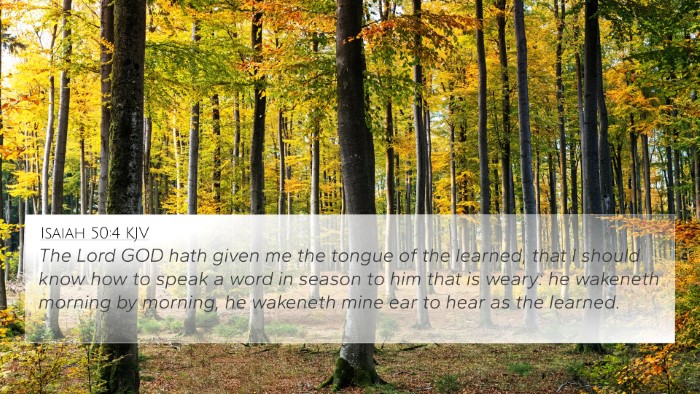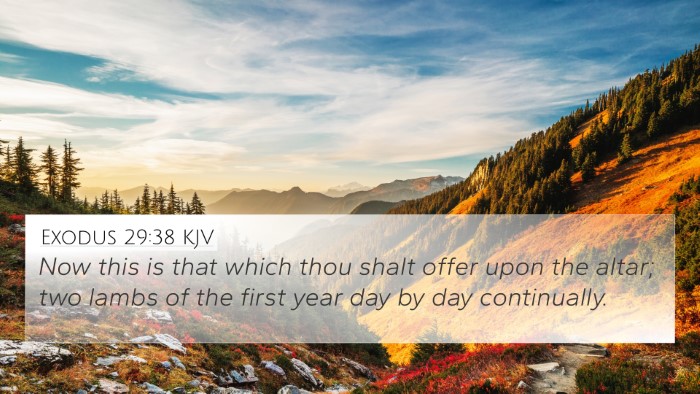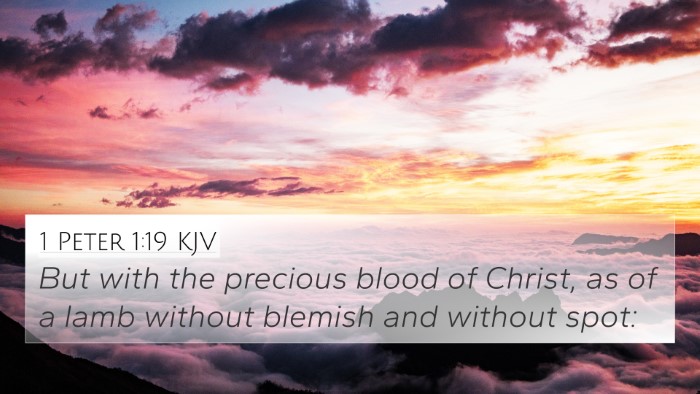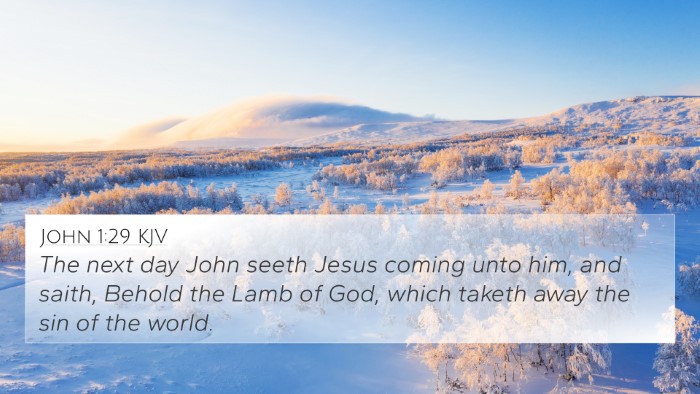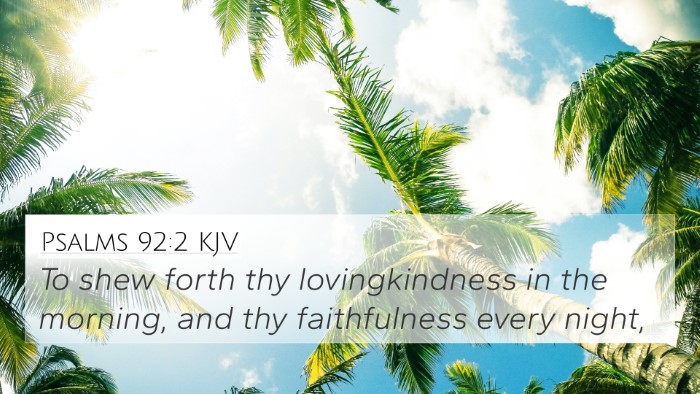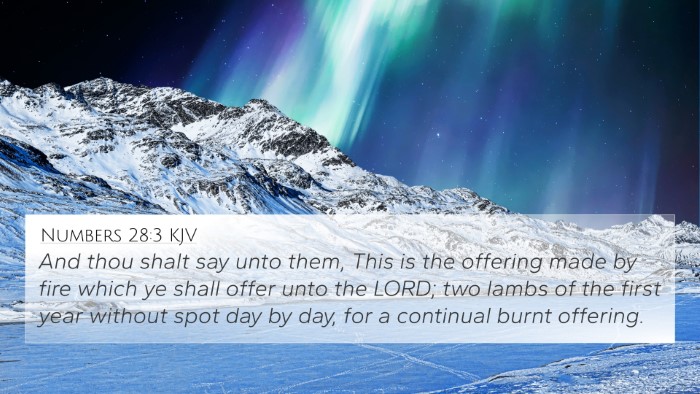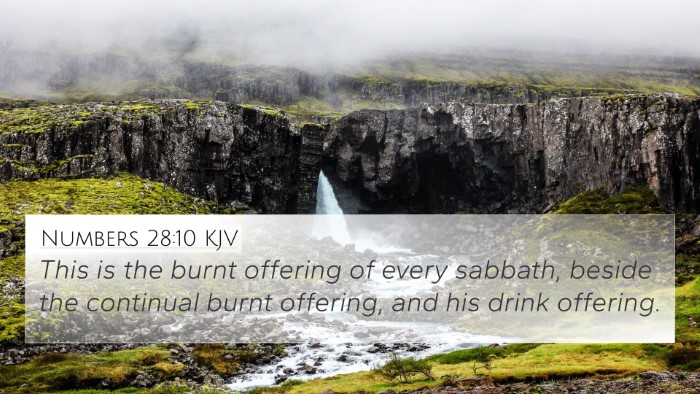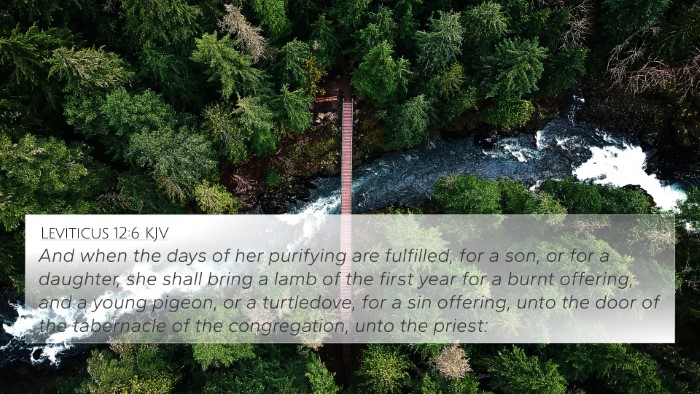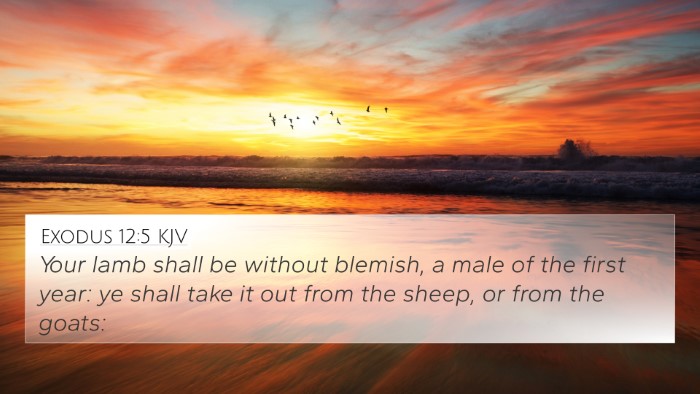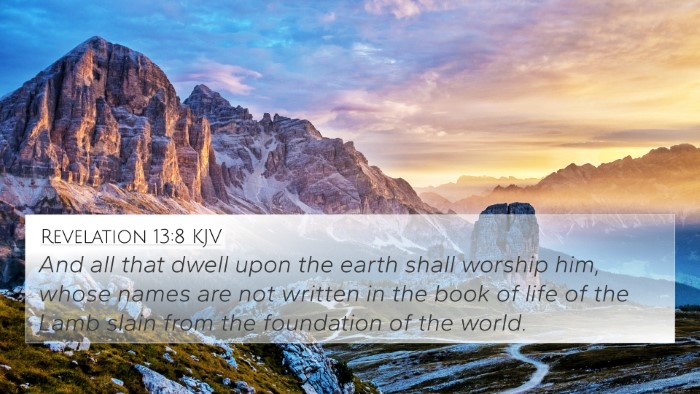Ezekiel 46:13 - Understanding the Offering of the Lamb
Bible Verse: Ezekiel 46:13 - "And thou shalt daily prepare a burnt offering unto the LORD of a lamb of the first year without blemish: thou shalt prepare it every morning."
Summary of Ezekiel 46:13
This verse outlines God's instructions regarding the daily offerings in the temple, specifically focusing on the lamb that must be presented each morning. The emphasis on a "lamb of the first year without blemish" highlights the importance of purity and perfection in the offerings to God.
Commentary Insights
Matthew Henry's Commentary
Henry emphasizes that the daily offering of a lamb signifies the constant need for atonement and the importance of maintaining a relationship with God. The lamb's lack of blemish represents Christ, the perfect sacrifice. This daily ritual served as a reminder of the sinfulness of humanity and the necessity of redemption.
Albert Barnes' Notes
Barnes explains that this command reflects the continuing need for offerings and sacrifices, illustrating an enduring covenant between God and Israel. The consistent offering serves as a symbol of gratitude and dedication. The lamb is representative of Christ’s ultimate sacrifice, which fulfills the law and propitiates God's wrath for believers.
Adam Clarke's Commentary
Clarke notes the significance of the morning offering, marking the beginning of the day with remembrance of God's mercy and grace. He also highlights that the quality of the offering—being without blemish—points to the need for believers to strive for holiness in their lives in response to God's grace.
Thematic Connections
The instructions in Ezekiel 46:13 can be connected to various themes found throughout the Scriptures:
- Daily Devotion: Like the constant offering of the lamb, believers are encouraged to maintain a daily relationship with God (1 Thessalonians 5:17).
- Atonement and Sacrifice: The lamb parallels Christ's sacrificial death (John 1:29, Hebrews 10:11-12).
- Purity and Holiness: The necessity for a blemish-free lamb relates to God's demand for holiness among His people (1 Peter 1:16).
- Morning Sacrifices: The practice of offering in the morning speaks to beginning each day with worship and reliance on God (Psalm 5:3).
- Covenantal Relationship: The practice also underscores the relationship between God and His people (Jeremiah 31:33).
- Christ as the Fulfillment: The continuous nature of the offering reflects Christ's eternal priesthood (Hebrews 7:24-25).
- The Role of Worship: Establishes the importance of structured worship in the life of believers (Hebrews 10:24-25).
Cross-References
To gain a deeper understanding of Ezekiel 46:13, consider these related Bible verses:
- Exodus 29:38-42 - Instructions for daily offerings.
- Leviticus 1:10-11 - The requirements for a burnt offering.
- John 1:29 - Jesus as the Lamb of God.
- Hebrews 9:14 - The eternal sacrifice of Christ.
- 1 Peter 1:19 - Christ as a lamb without blemish.
- Romans 12:1 - Presenting ourselves as living sacrifices.
- 1 Corinthians 5:7 - Christ, our Passover lamb, has been sacrificed.
- Psalm 51:17 - God desires a broken spirit and contrite heart over sacrifices.
- Jeremiah 33:20-21 - The covenant relationship affirmed through sacrificial worship.
- 1 Thessalonians 5:17 - Encouragement to pray without ceasing.
Conclusion
In Ezekiel 46:13, we find a rich tapestry of theological implications that go beyond the ritualistic aspect of offering. This verse serves as a reminder of God's ongoing call for holiness, the necessity of atonement through Christ, and the importance of devotion in the daily lives of believers. Understanding these connections not only helps to enhance one's study of Scripture but also strengthens the believer's relationship with God.
